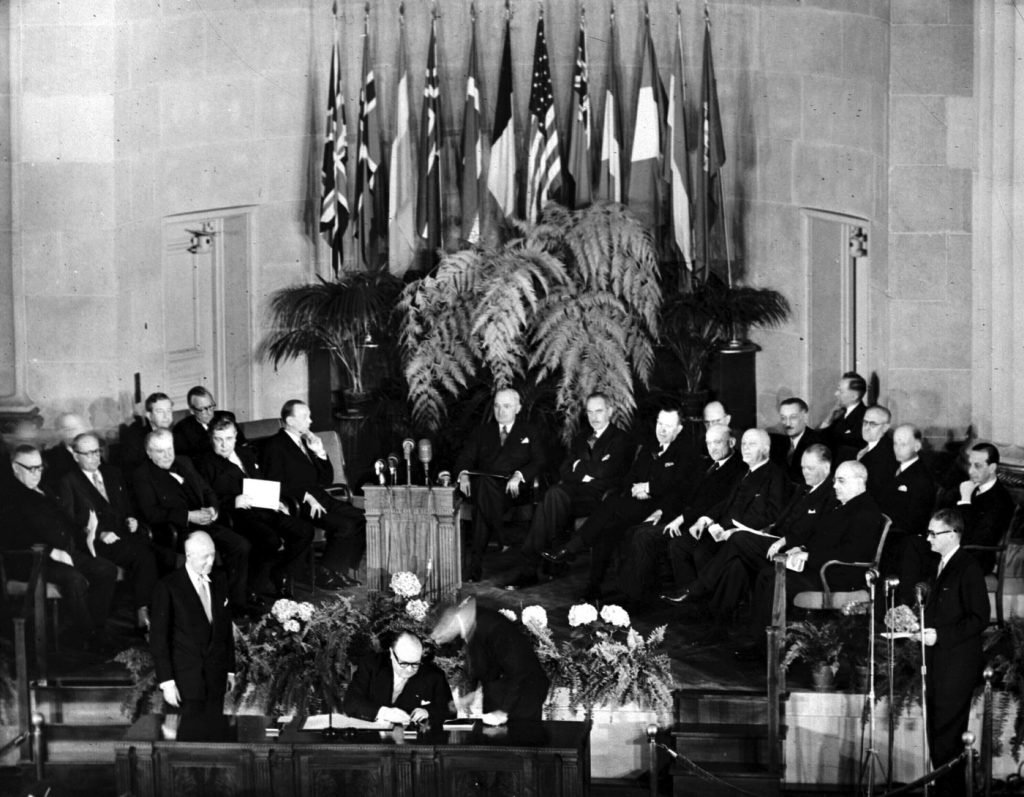On Tuesday, U.S. President Donald Trump and NATO leaders are set to convene for a summit in The Hague that may either strengthen the world’s largest security organization with a new defense spending commitment or exacerbate existing divisions among the 32 member allies. Recent developments have shifted the atmosphere from optimistic to uncertain, particularly following Spain’s rejection of a proposed NATO target calling for member countries to spend 5% of their GDP on defense, which Trump has firmly endorsed.
NATO Secretary-General Mark Rutte expressed hope that European nations and Canada would agree to match U.S. defense spending levels for the first time. However, Spain labeled the 5% figure as “unreasonable.” Trump responded by insisting that while other nations should meet this goal, the U.S. should not be obligated to do so. He specifically criticized Spain as having low defense spending, with figures showing it spent less than 2% of its GDP on defense last year, while Canada allocated 1.45%.
Aside from defense spending discussions, Trump's recent military actions, including airstrikes on Iranian nuclear facilities, reignite memories of the 2003 U.S.-led invasion of Iraq that splintered NATO alliances. European allies and Canada are also pushing for Ukraine to be a focal point of the summit, although they are cautious about Trump potentially sidelining Ukrainian President Volodymyr Zelenskyy.
The summit will feature an informal dinner on Tuesday, followed by one working session on Wednesday morning. Drafters have prepared a concise summit statement to avoid drawn-out disputes over minutiae. Historically, NATO was established in 1949 to address security threats from the Soviet Union during the Cold War and now comprises 32 nations, with Sweden joining last year amid rising concerns about Russian aggression.
NATO operates on a collective security principle outlined in Article 5, committing all members to aid any ally whose sovereignty may be under attack. Although Trump claims to support this pledge, he has previously raised doubts about the U.S. commitment, even as he emphasizes the importance of maintaining U.S. membership in the alliance.
The United States remains NATO’s most formidable member in terms of both military capability and defense spending, a position that has historically shaped NATO's agenda. Despite this, under Trump's leadership, the U.S. has largely reduced its active role, affecting NATO's strategic landscape. The alliance functions under civilian leadership, with Rutte managing day-to-day operations while military headquarters are headed by a senior U.S. officer.
The role of Ukraine at the summit remains ambiguous. Although Zelenskyy has been invited, his participation may be limited, potentially only joining during the dinner. The NATO organization itself is not equipped to provide arms to Ukraine, focusing instead on logistical support such as fuel and medical supplies. However, NATO members have been supplying military equipment, with European countries accounting for 60% of the military aid received by Ukraine in 2024, coordinated through a hub on the Polish border.
A key agenda item for NATO allies includes countering Russian aggression through enhanced military readiness. Recent NATO plans involve the potential deployment of 300,000 personnel within 30 days in response to any threats. Nonetheless, skepticism surrounds whether allies can effectively mobilize sufficient forces. The deterrence that comes from allied military readiness has been weakened by Trump's aggressive economic policies towards allies, including tariff threats.
Despite ongoing discussions to increase their defense budgets following Russia's annexation of Crimea in 2014, and subsequent military actions, it remains to be seen whether NATO countries will commit to higher spending targets. The possibility of raising the defense spending target from 2% to 3.5%, alongside an additional 1.5% for essential infrastructure improvements, represents significant political stakes for the allies as they navigate their defense commitments amidst complex global security challenges.











